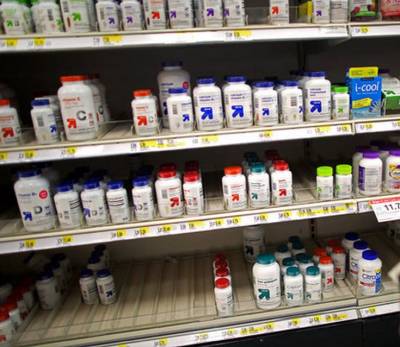DrCarney.com Blog
Houseplants and Cheap Fillers Found in Supplements
According to an article written February 3, 2015 in The New York Times by Anahad O'Connor, many major retail supplements do not contain what they list on the label. They also contain ingredients that could be dangerous. "The New York State Attorney General's Office accused four major retailers on Monday of selling fraudulent and potentially dangerous herbal supplements and demanded that they remove the products from their shelves."
The Attorney General's Office examined 78 bottles of herbal supplements from numerous Walmart, Target, Walgreens and GNC retailers from the state of New York. When the contents of the supplements were examined, the investigation revealed that many of the supplements "tested negative for the herbs [listed] on their labels. ...Four out of five of the products did not contain any of the herbs on their labels." What they did find instead however, were cheap fillers such as tropical houseplants, spruce, allium (onion), powdered rice legumes and radish, beans, peas and carrots. Some products even contained wheat, even though the label clearly stated that it was wheat and gluten-free. This could pose serious health risks to those consumers with allergies. See the list of ingredients here.
O'Connor points out that "Under a 1994 federal law, supplements are exempt from the F.D.A.'s strict approval process for prescription drugs, which requires reviews of a product's safety and effectiveness before it goes to market. The F.D.A. requires that companies verify that every supplement they manufacture is safe and accurately labeled. But the system essentially operates on the honor code." The article quotes the F.D.A. saying "These products are not subject to F.D.A.'s premarket review or approval requirements for safety and effectiveness, nor to the agency's rigorous manufacturing and testing standards for drugs."
The State Attorney General, Eric T. Schneiderman stated in the article "Mislabeling, contamination and false advertising are illegal." O'Connor's article suggests that the problems are widespread. "Research conducted at the University of Guelph in Canada found that as many as a third of herbal supplements tested did not contain the plants listed on their labels — only cheap fillers instead."
O'Connor's article continues, saying "Critics say it is all too easy for dangerous supplements to reach the market because they are not subject to a review or approval process. Under current law, supplements are assumed to be safe until the authorities can prove otherwise. And in general, they are pulled from shelves only after serious injuries occur — which is not uncommon. In 2013, for example, an outbreak of hepatitis that struck at least 72 people in 16 states was traced to a tainted supplement. Three people required liver transplants, and one woman died. It is not only consumers. Hospitals have been affected, too. In December, an infant at a Connecticut hospital died when doctors gave the child a popular probiotic supplement that was later found to be contaminated with yeast."
The article mentions that many labels on herbal products are deliberately misleading and that there's a chance that these products contain a high percentage of contaminants. The investigation prompted by the New York State Attorney General's Office "...was the first time that a law enforcement agency had threatened the biggest retail and drug-store chains with legal action for selling what it said were deliberately misleading herbal products." Additional information regarding investigations on herbal supplements can be seen here.
Scroll Down Page to Leave Comments

Got Questions?
We would love to receive your questions. Join in the Starch-Smart Discussions on DrCarney.com by signing up for a free membership to the Dr. Carney Community.
When you subscribe to the blog, we will send you an e-mail when there are new updates on the site so you wouldn't miss them.




